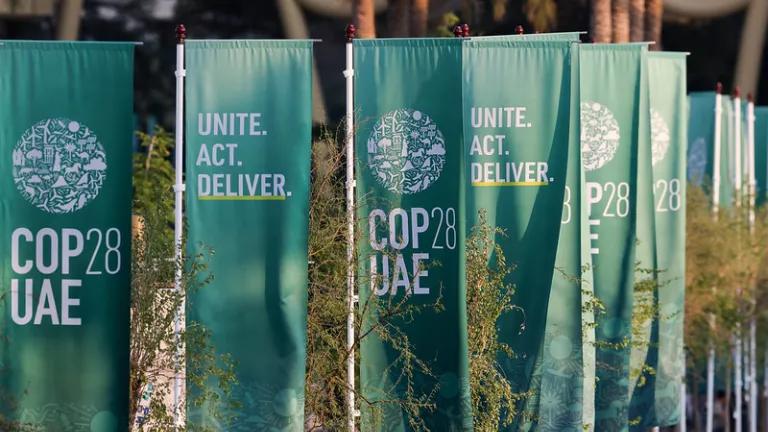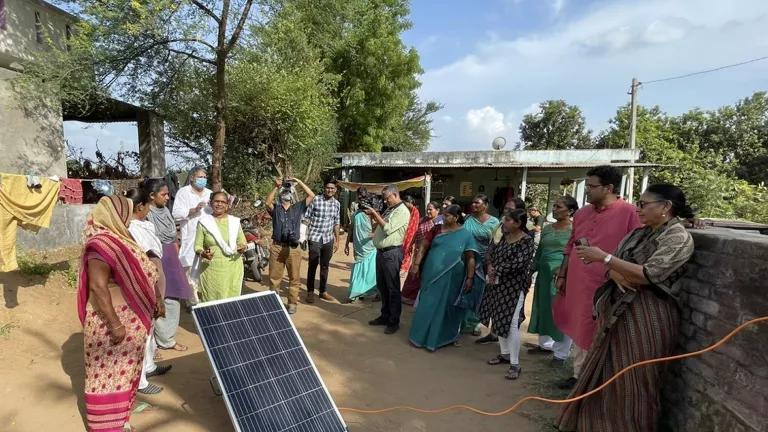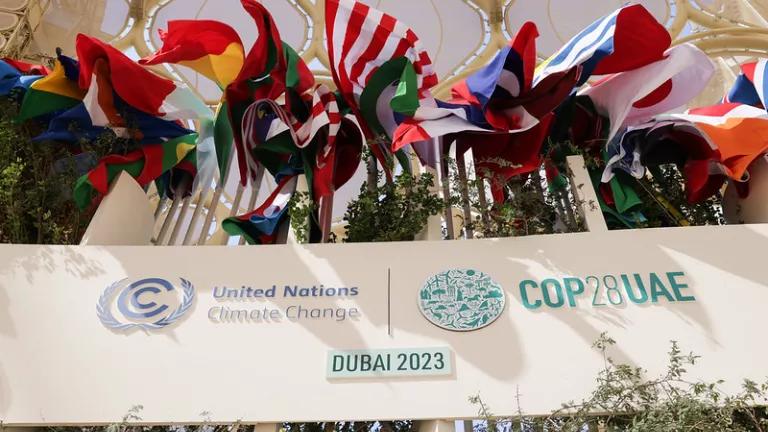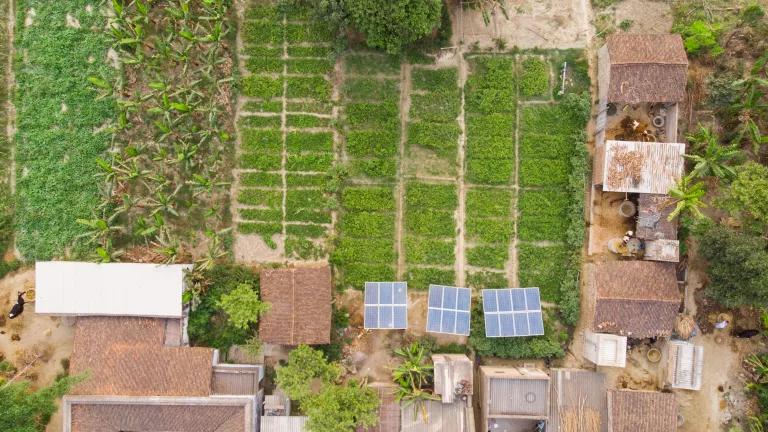Raising the Profile for Women-led Subnational Climate Action
Women leading clean energy and climate friendly solutions, especially at the subnational level, will be key to achieving international climate goals

COP28's key message to unite, act and deliver
Christopher Pike/COP28, CC BY-NC-SA 4.0
This blog is co-authored with Charu Lata, NRDC India.
The recently concluded COP28 climate talks in Dubai highlighted growing international consensus and commitments on accelerating the transition towards clean energy and away from fossil fuels. The summit opened with the operationalization of the Loss and Damage Fund, which will provide assistance to countries most vulnerable to and severely impacted by climate change. The summit concluded with the first Global Stocktake, an assessment of the global action on climate change with 198 nations coming together to craft a response. The UAE Consensus encouraged the submission of updated Nationally Determined Contributions (NDCs) by 2025 (or COP30) and added a new target to triple renewable energy and double energy efficiency by 2030 in order to keep the goal of limiting warming to 1.5°C by 2100 within reach. As countries move towards these goals, a just and equitable transition is key in India and other developing countries, especially for the most vulnerable communities who have contributed least to the problem but face the worst impacts of climate change. In India, local solutions that are led by and engage with women, subnational governments, and rural communities, have shown tremendous impact and could serve as a model for other countries to achieve an equitable and sustainable clean energy transition for all.
How Women can Move the Needle on Climate Action
Women are disproportionately affected by the impacts of climate change: the lack of energy access, coupled with gender inequality, remains one of the greatest challenges for any country. At the same time, there is growing evidence to show that women are effective agents in bringing about change at the grassroot level and can play a significant role as clean energy leaders. NRDC and Self Employed Women’s Association’s (SEWA) Hariyali Gram (Green Village) Initiative is an excellent example of empowering women through clean energy, while simultaneously improving their lives and livelihoods.
The Hariyali Gram initiative focuses on creating and empowering women entrepreneurs by implementing clean energy and climate friendly solutions in their communities, like Distributed Renewable Energy (DRE) technologies. In addition to meeting climate goals, implementation of DRE technologies can help build resilient communities by enabling improved livelihoods and income, better health and well-being, improved education opportunities, and a better quality of life, especially for rural women who play multiple roles of being the homemaker, caretaker and now increasingly, entrepreneur.
Being at the center of climate solutions gives women an opportunity to unleash change that has a positive impact across all aspects of their lives – from energy access to better health and education, from resource governance to community resilience. NRDC, with the Ministry of New and Renewable Energy (MNRE), Government of India, and UN Climate Change Global Innovation Hub organized a side event at COP28 called ‘Gender Inclusive Energy Access: Putting Women at the Heart of Climate Action.’ The session showcased innovative and successful examples of women-led clean energy and climate friendly solutions. The deliberations focused on how gender considerations can be woven into the social fabric of the society, so that women-led climate action can become a norm going forward.

The all-women panel of speakers at NRDC’s side event. Left to Right: Dipa Singh Bagai, NRDC India; Reema Nanawaty, SEWA; Charu Lata, NRDC India; Kavita Rai, IRENA; Bharati Chaturvedi, Chintan
NRDC India
Empowering Rural Households on Climate Action
At COP28, NRDC and SEWA with Association of Renewable Energy Agencies of States (AREAS) MNRE, also released a first-of-its-kind Technology Guidebook on DRE technologies, which equips end-users and rural households with step-by-step information and best practices to operate and maintain the suite of clean energy and climate friendly solutions at the village level. By skilling and empowering rural households, especially women, to take greater ownership over the operation and maintenance of these technologies, this guidebook will serve as an important resource in enabling the creation of a holistic clean energy ecosystem at the grassroots level.

Subnational Climate Action: Making Progress at the State and Local Level
In order to ensure the efficacy and success of the clean energy transition, it is essential for state and local governments – often responsible for both the primary data collection and implementation of interventions – to present their perspectives at multilateral platforms. The experiences of subnational governments through knowledge exchange and sharing of best practices on clean energy transition can be invaluable in progressing climate action across India and other developing countries facing similar challenges. NRDC with AREAS and International Solar Alliance (ISA) organized another event at COP28, called ‘Subnational Climate Action: Initiatives by Indian States in promoting Solar Energy,’ which highlighted the innovative solar energy policies and best practices that have been successfully implemented by Indian states. NRDC has been working closely with AREAS for the past two years to scale climate friendly solutions across India through close engagement with State Nodal Agencies. The two organizations also renewed their partnership to advance clean energy and climate-friendly solutions through signing off on an extension of their Memorandum of Understanding.

NRDC-AREAS MoU signing at COP28. Left to Right: Dinesh Jagdale, MNRE; Manish Bapna, NRDC; J.K. Jethani, MNRE; Ramana Reddy, NREDCAP; Dipa Singh Bagai, NRDC India; Ram Kumar, UPNEDA
NRDC India
For more updates on NRDC India at COP28 please follow us on LinkedIn.




